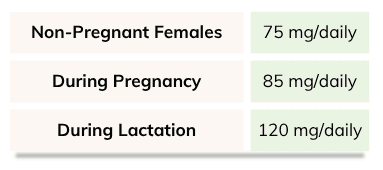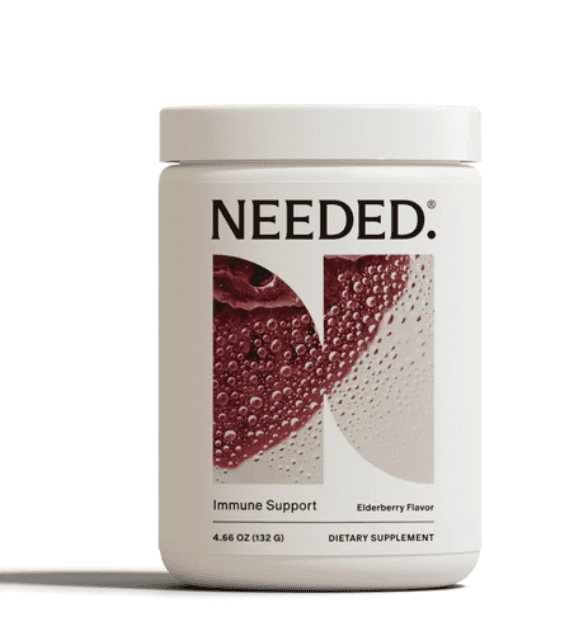What is vitamin C?
Vitamin C is a water-soluble vitamin that must be consumed from our diet since the body can’t make or store it (1).
It’s an antioxidant that is often referred to as ascorbic acid. It’s essential for immune function, collagen synthesis, skin health, bone health, and blood vessel function/blood pressure.
What is vitamin C’s role in the body?
Vitamin C plays several key roles in our bodies, including (2, 3):
- Promotes collagen synthesis: Vitamin C works with enzymes to create amino acids unique to collagen structure– without vitamin C, we don’t have collagen!
- Assists wound healing
- Enhances iron absorption from plant-based foods
- Acts as an antioxidant against oxidative stress and cell damage
- Supports the immune system: Stimulates white blood cell protection, antibodies, and neutrophils, which are involved in the early immune response
- Helps repair and strengthen bones (including teeth) and cartilage
- Involved in the creation of neurotransmitters
- Helps us use copper in the body, and works with copper to signal to the brain to make thyroid hormone
- Involved in the physiology of the nervous system, supports the nervous system, and the stress response.

Is vitamin C important for fertility?
Vitamin C is a significant nutrient for both male and female fertility!
For females, vitamin C is involved in (4, 5, 6):
- Progesterone production by increasing the sensitivity of progesterone receptors
- Supporting egg quality by protecting against oxidative stress and cell damage
- Increasing endometrial thickness to support implantation
For males, vitamin C is involved in (7, 8):
- Protecting sperm from DNA damage from free radicals (oxidative stress)
- Improving sperm quality and motility
- Possibly increasing sperm count
Animal studies have found that a diet low in vitamin C induces a state of subfertility, reduces overall fecundity, and adversely impacts both pregnancy outcomes and growth in the offspring (F). These findings have been thought to apply to humans as well.

Is vitamin C important for pregnancy?
Due to inadequate intake, it is typically harder to enjoy fruits and veggies, and physiological changes during pregnancy decrease vitamin C levels, so trying your best to consume it regularly is essential.
Vitamin C is important for maintaining your immune system and preventing illness during pregnancy (9, 10).
Vitamin C and Birth Weight + Length
Several studies from South Korea have linked both vitamin C and vitamin E (both antioxidants) to positive birth weight and length outcomes (1, 2). They specifically mention that serum levels of vitamin C in the second trimester of pregnancy were predictive of birth weight and length.
It’s clear that the more fruits and vegetables you eat during pregnancy (for both these nutrients and more), the better!
Lower risk of pregnancy-associated conditions and complications
In a study with pregnant women who had type 1 diabetes, low vitamin C levels were found to be more problematic (11).
The researchers showed that inadequate vitamin C levels within 4 weeks of delivery were associated with a greater risk of pregnancy complications such as prematurity, pregnancy-induced hypertension, preeclampsia, fetal malformations, placental abruption, and stillbirth (12).
Again, these results were found in pregnant women with type 1 diabetes, and the number of participants was relatively small. Still, increasing vitamin C intake in the later stages of pregnancy is a good idea.
Supports iron absorption
Vitamin C also helps our bodies absorb iron better (13). This partnership cannot be understated during pregnancy.
Calcium can interfere with iron absorption (14), but studies have shown that in humans, this inhibition only lasts for a short while and typically doesn’t interfere substantially over a lifetime.
To boost iron absorption—especially from plant-based sources—pair high-iron foods with fruits and vegetables rich in vitamin C. Avoid eating high-calcium foods simultaneously, since calcium can interfere with iron absorption. This tip is most important if you’re a vegetarian or have low iron or anemia. If you regularly eat animal products and don’t have iron concerns, it’s less of a priority, but still worth noting.
See some high iron + vitamin C combos below.

Is vitamin C important for postpartum and breastfeeding?
Vitamin C is important for postpartum recovery and the health of the baby if you are breastfeeding (15, 16).
It’s a nutrient best known for supporting immune health, which is certainly important after giving birth. It is also needed for wound healing and collagen synthesis (13). These roles are essential for postpartum recovery and healing, especially if you’ve had a cesarean section or perineal tear during delivery.
Additionally, when working to replenish iron stores during postpartum, vitamin C helps enhance iron absorption. And since vitamin C modulates the response, it’s also critical for supporting your mental wellbeing during this vulnerable time (17).
Vitamin C is also present in breast milk to meet the baby’s needs (18). Some research suggests a maternal diet rich in vitamin C foods could increase the antioxidants in breast milk and reduce the risk of the infant developing some allergic conditions, such as asthma or eczema (19, 20).

How much vitamin C do I need?
You will likely meet vitamin C needs through food and a quality prenatal vitamin. However, a supplement could be indicated if you know you have a low vitamin C intake or a deficiency (21).
The following intake amounts are recommended:

Where do we find it?
Many fruits and veggies are good sources of vitamin C. Include a variety of the following regularly in your diet to meet your vitamin C needs before, during, and after pregnancy (22):
- Bell Peppers
- Kiwis
- Broccoli
- Strawberries
- Brussel sprouts
- Cantaloupe
- Cabbage
- Cauliflower
- Potatoes
- Spinach
Is it possible to be deficient in vitamin C?
Yes, it is possible to be deficient in vitamin C. However, it is more common in males than in females, who have about a 12 percent chance (the highest statistical chance in one’s lifetime) from ages 25-44 of becoming deficient (23).
Those at the highest risk of becoming deficient include those with medical conditions such as Crohn’s or celiac, which interfere with vitamin C absorption, and those with a diet low in fruits and veggies.
Should I supplement with vitamin C?
Vitamin C is likely in your prenatal vitamin and most generic multivitamins or “immune-boosting” supplements.
The most common form of supplemental vitamin C is ascorbic acid, which doesn’t contain tyrosinase or copper, which means it can’t provide you with all the benefits that vitamin C containing all its components can.
Ascorbic acid is a man-made, commercial form of synthetic processed vitamin C, designed to mimic natural vitamin C.
However, naturally occurring vitamin C contains ascorbic acid and other compounds and minerals, which are missing from the synthetic creation of ascorbic acid.
High doses of vitamin C, such as ascorbic acid, can also interfere with copper absorption and metabolism, decreasing copper status. While moderate intakes of ascorbic acid generally don’t cause significant problems (especially if they’re within a prenatal that also contains copper), high levels taken in isolation (such as those in immune-boosting supplements) can interfere with the body’s ability to absorb and utilize copper and can also deplete vitamin B12 (24, 25).
The most ideal way to supplement with vitamin C is in its whole food form, such as acerola and camu-camu. You can buy these in various forms (powders, capsules) and add them to a mineral mocktail, smoothie, or other beverage of choice.
Here are some recommended brands:
- Perfect Supplements pure acerola cherry powder
- Navitas organic camu powder
- Smidge Kakadu Plum Extract capsules (higher in vitamin C than any other food!)
- Camu Supreme Capsules
We recommend Needed’s Immune Support if you want a well-rounded, pregnancy-safe immune-boosting product. It does not contain vitamin C, so you could combine it with a vitamin C option from above. This product tastes great in water; add it to plain yogurt or a smoothie.
Other vitamin C-containing products and supplements
Vitamin C is also found in many different commercially available beverages.
One popular one is Emergen-C. One packet of this fizzy drink packs a massive 1000 mg punch of vitamin C (as ascorbic acid)! It also has only 35 calories, 8 grams of carbs (6 g of which come from sugar), and small amounts of B vitamins, zinc, calcium, and chromium.
While Emergen-C is safe during pregnancy, as you’ll read below, you don’t want to go overboard with supplementation. As you just read, a whole food source of vitamin C is likely a better option. You’ll also notice these drink packets come with sugar; while it is not much, it is something to be aware of.
Always check the label of products like Emergen-C to verify precisely what ingredients they include.

Can I get too much vitamin C?
Since vitamin C is water-soluble, ingesting too much of this vital nutrient is difficult.
The National Institutes of Health (NIH) recommends that pregnant people consume 85 mg of vitamin C daily, with an upper limit of 2000 mg for all adults. Supplementing with over 2000 mg of vitamin C daily is not advised.
The NIH also outlines headaches, cramping, diarrhea, and nausea as side effects of too much vitamin C in one day. There is no concrete scientific evidence for overdoses causing peptic ulcers or vitamin B12 deficiencies, only anecdotal cases (26).

The Bottom Line
- Vitamin C has many essential roles in the body, including supporting the immune system, producing collagen, aiding wound healing, enhancing iron absorption, protecting against oxidative stress, and supporting the nervous system and stress response.
- Vitamin C supports fertility in both males and females—it helps boost progesterone production, improve egg and sperm quality, and support implantation and hormonal balance.
- During pregnancy, vitamin C is crucial for immune support, healthy fetal growth, and reducing the risk of complications like gestational hypertension, preeclampsia, and low birth weight. It also enhances iron absorption, especially from plant-based sources.
- In the postpartum period and while breastfeeding, vitamin C helps with recovery, wound healing, mental wellbeing, and boosting antioxidant levels in breast milk, which may reduce the risk of allergies in infants.
- Most people meet their needs through diet and a prenatal vitamin, but whole-food sources like acerola or camu camu are ideal for supplementing. Avoid high-dose synthetic supplements unless recommended, as excessive ascorbic acid can interfere with copper and B12 absorption.
Written by: Ryann Kipping, MPH, RDN, LDN, and Claire Gilmore, MSCN, CNS, LDN



